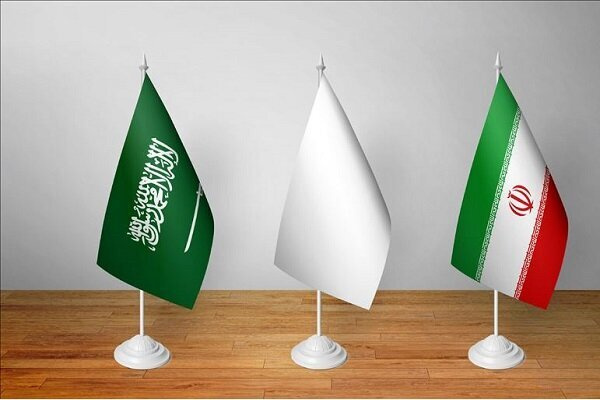Baghdad talks pave the way for Iranian-Saudi rapprochement

After years of rivalry and lack of diplomatic relations, Saudi Arabia and Iran are slowly moving toward mending ties thanks to at least three rounds of behind-closed-doors talks mediated and hosted by the government of Iraqi Prime Minister Mustaf al-Kadhimi, who arrived in Tehran on Sunday as the first foreign high-ranking official to visit Iran since the new Iranian president, Ayatollah Seyed Ebrahim Raisi, took office in early August.
Al-Kadhimi had many issues on his agenda during his meetings with Iranian officials, including Ayatollah Raisi and Secretary if Iran’s Supreme National Security Council Ali Shamkhani. These issues included visa abolition for Iranian citizens, completion of a joint railway project, increasing the level of trade between Iran and Iraq, withdrawal of U.S. forces from Iraq, and the presence of anti-revolutionary dissident groups in Iraqi Kurdistan.
During a joint press conference, Ayatollah Raisi and al-Kadhimi stressed the importance of deepening the Iran-Iraq relations at all levels. “The deep bonds between Tehran and Baghdad stems from the beliefs and hearts of two nations, two countries and two governments,” Ayatollah Raisi said. “Despite the wishes of the enemies, the level of relations between Iran and Iraq will develop day by day.”
But in addition to bilateral issues, the Iraqi prime minister also discussed regional issues, according to Arab press reports. Arab media outlets reported that during his visit to Tehran, al-Kadhimi would pursue a mediation between Tehran and Riyadh among other issues. Informed sources revealed to Al-Araby Al-Jadeed that al-Kadhimi planned to discuss with Iranian officials four important issues during the visit, which are the Iraqi elections issue, the energy issue, and the mediation between Iran and Saudi Arabia, as well as other mediation between Tehran and Washington.
Regarding the mediation between Tehran and Riyadh, these sources told Al-Araby Al-Jadeed that al-Kadhimi will bring with him new proposals to push this mediation forward and achieve practical results for it in light of the failure that accompanied the Baghdad conference recently to persuade the leaders of the two countries to participate in the conference on the one hand, and hold a meeting between the foreign ministers of Iran and Saudi Arabia on the sidelines of the conference on the other hand.
The sources indicated that Baghdad is seeking to hold a meeting between the foreign ministers of the two countries during the next stage, noting that the Saudi side had suggested that Iranian Foreign Minister Hossein Amir Abdollahian visit Saudi Arabia, but the Iranian side refused, and for its part suggested that Saudi Foreign Minister Faisal bin Farhan visit Tehran.
The sources added that the Iranian foreign minister had held detailed talks with Kuwaiti Prime Minister Sheikh Sabah Khaled al-Hamad al-Sabah on the sidelines of the Baghdad conference, and the Kuwaiti official also held a similar meeting with the Saudi foreign minister, and exchanged messages between the two sides.
“These multilateral contacts created a comfortable atmosphere for a meeting at the level of the foreign ministers of Iran and Saudi Arabia,” the sources noted.
Tehran and Riyadh have been involved in security-oriented talks in Baghdad ever since April when Tehran also resumed talks with major world powers over reviving a 2015 nuclear deal, officially known as the Joint Comprehensive Plan of Action (JCPOA). So far, three rounds of talks have been held, with the fourth round is expected to go ahead soon.
Before al-Kadhimi’s visit, Iranian Ambassador to Iraq Iraj Masjedi, who has been involved in the Iran-Saudi talks, announced that they would resume soon. “So far, we have had three rounds of talks with the Saudi side, and the fourth round will be held following the formation of the new Iranian government,” he said at an event in Baghdad held on the sidelines of the August Baghdad summit.
Underlining that Iran is a large and civilized country and is ready for any kind of dialogue with other countries, including Saudi Arabia, Masjedi said, “Iran has declared its readiness for dialogue and peace and has extended its hand to help neighboring countries and the region.”
During the past three rounds, the Saudis have been cautiously treating the talks with Iran as “exploratory.” They brought up the issue of Yemen at an early stage, possibly to gauge the seriousness of Iran in the talks. Yemen is the most important point of contention, which explains why Tehran and Riyadh have agreed to form an Iranian-Saudi-Iraqi “thinking cell” to exchange ideas and opinions to set broad lines for resolving the Yemeni crisis, according to the Lebanese newspaper Al-Akhbar.
Citing diplomatic sources, the newspaper said that the Baghdad talks between Tehran and Riyadh are up and running. The sources confirmed to Al-Akhbar that the Iraqi capital will witness “soon” the fourth round of Iranian-Saudi talks after they were postponed due to the Hajj season and the Iranian presidential elections.
The sources confirmed that the previous three rounds of dialogue led to “results that will appear soon” through the reopening of each country's consulates in the other country, paving the way for the resumption of diplomatic relations between them.
The same sources stressed that the Baghdad dialogue approaches the contentious issues between the two countries and sets the general contexts for implementing some measures in a way that helps bridge views, and works to bring about de-escalation between the two parties, which resulted in the “Oman dialogue.”
According to Al-Akhbar, the Oman talks deal with technical issues and procedural details. It also serves as a platform for the exchange of “security information” in the context of confidence-building measures.
Source: Tehran Times

